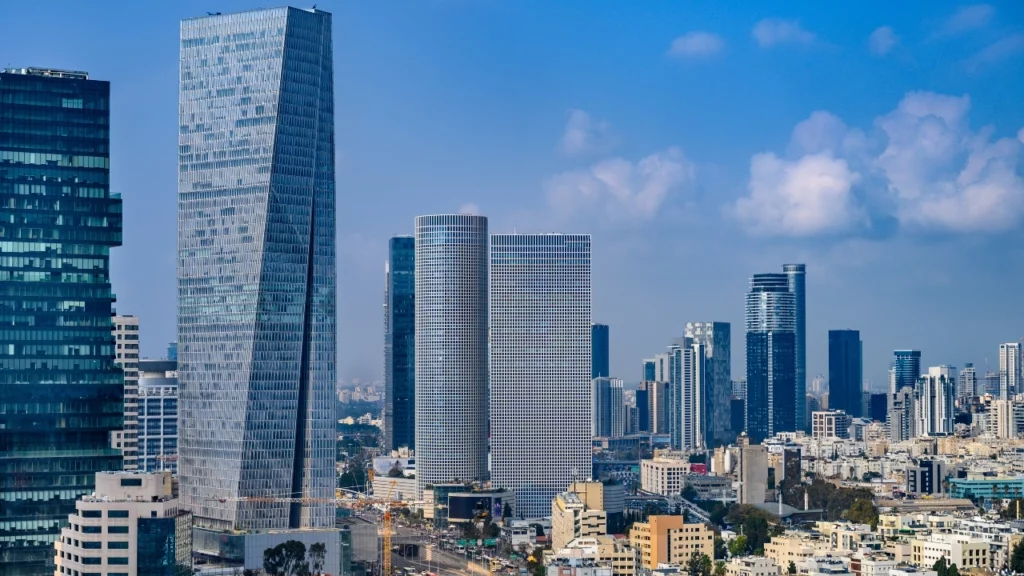

Matt Lamers
Apr 13, 2023
Medical marijuana patients who purchase oil can't buy the flower
In 2020, by contrast, the number of authorized medical cannabis patients more than doubled over two years.
The growth in Israel’s medical cannabis industry has slowed over the past several months, but experts say regulatory changes are afoot that could reinvigorate patient numbers if the country’s tumultuous political situation stabilizes.
The number of authorized medical cannabis patients in Israel reached an all-time high recently – topping 123,000 – before dipping in February, according to data from the Israeli Medical Cannabis Agency (IMCA). In 2020, by contrast, the number of authorized medical cannabis patients more than doubled over two years.

Israel has one of the world’s largest medical marijuana markets. And industry sources suggest the slight decrease in February continues a slowing trend, stemming partly, they said, from the recent arrest of a small number of psychiatrists suspected of issuing cannabis licenses without a sufficient medical basis. “The decline is also due to the fact that licenses can only be obtained for very specific diseases and under precise conditions,” said Oren Lebovitch, publisher of The Israeli Cannabis Magazine.
Lebovitch noted that Israeli governments have changed frequently in recent years.
Last fall, for example, the country held its fifth election in four years.
The frequent turnover has led to the nation's medical cannabis industry receiving inconsistent treatment from the government. In 2020, for example, the government laid out a plan to legalize recreational cannabis, looking to Canada as a potential blueprint.
But that plan failed to materialize because of a change in government. In the context of the current political environment, Lebovitch suggests that it is unlikely adult-use legalization will be approved in the next couple of years. “However, there is some hope for the expansion of the medical cannabis industry in Israel,” he said.
Streamlining medical
That hope comes from a government plan to streamline the patient application process.
In July 2022, a Ministry of Health committee supported a major reform to the regulatory framework governing Israel's medical cannabis industry. The committee said Israel ought to transition from the grant of personal patient licenses - which involves considerable bureaucratic red tape - to the issuance of prescriptions via public health care services.
In August 2022, new regulations adopting this transition were issued for public comments.
The new rules propose allowing cannabis to be prescribed by physicians and distributed by pharmacies. However, as of January, the new rules had not been adopted. Oren Shuster, CEO and founder of Tel Aviv-based IM Cannabis Corp., noted the lack of progress is a drag on the market. “This is something that keeps the market from growing,” Shuster said. “If it was otherwise, the number of consumers would be way higher.
Everybody who needs a prescription can get one.” However, he said obtaining a patient license is more complicated, because the procedure must be completed through the Ministry of Health. “It’s hard to say when this will change because of the political situation now in Israel," Shuster said. "When Israel moves to a prescription-only policy, this will change the market completely. The biggest question is when will it happen?”
Patients are required to obtain licenses either directly from a doctor or from the Israel Medical Cannabis Agency after a request from a physician.
“This is what is holding up the market, mainly. Once that is resolved, I think there will be plenty of room for the current market players," Shuster said. "I think this is the most important issue in the Israeli market. Once this is resolved, the rest will be solved as well.”
Lebovitch said the change could result in a sharp increase in the number of licensed patients, provided the plan is implemented.
Israel’s Ministry of Health already reported to the United Nations that it expects a sharp jump in the use of legal medical cannabis when the policy change is implemented.
“If it happens soon, the number of patients could increase to around 250,000 within two years," Lebovitch said. "If not, the rate of increase is likely to be slow, with around 150,000 patients expected in two years."
Flower is king
Flower has been the dominant product in Israel’s medical cannabis market for years.
The amount of flower approved for sale has grown steadily in recent years, from 2,631 kilograms (2.9 tons) in 2021 to 4,334 kilograms in early 2023.

But Lebovitch, the magazine publisher, said that sales account for only about 80% of the amount of flower approved for sale. He also said that what Israeli authorities refer to as "extracts" is actually only oil - not shatter, hashish or vape pens, all of which are prohibited in Israel’s medical cannabis market.
“It is worth noting that the use of oil is not very popular in Israel, and if it were pure extractions, the percentage would likely be as high as it is in Canada and the U.S.,” Lebovitch said. He said those who have a prescription for oil cannot purchase flower, but those who have a prescription for flower may purchase oil. “Therefore, part of the eligibility for inflorescence that appears in the graphs published by the Ministry of Health may actually be used to purchase oil,” he said.
Opportunities
Israel has been one of the biggest importers of medical cannabis in the world in recent years, opening the door to export opportunities from countries with established medical cannabis markets. Lebovitch said there is little indication that this trend will change in the near future, meaning those opportunities should continue.
“Despite efforts by senior officials in the industry and politics to establish (import) restrictions, such as limiting imports to only 25% of total production or implementing a ban on importing cannabis from abroad similar to Canada, I personally believe that such measures are unlikely to be put in place in the near term,” he said.
Lebovitch said, currently, foreign production accounts for an estimated 50% of total medical sales, with domestic production making up the other half.
Itai Rogel, head of business development for Bazelet Group - an Israeli medical cannabis producer based in Or Akiva - warned of the financial risk for those who import into the nation, citing the possibility that:
Their products simply won’t sell for a multitude of reasons.
Their products might have to be discounted for a sale.
“Profit-sharing models are more and more offered by overseas growers to Israeli players, where each side takes a risk until actual sales are made,” he said.
Regarding opportunities for non-Israeli companies, Rogel painted a bleak picture: “Right now there are no opportunities and only increased risk."
Still, that’s not stopping foreign businesses from investing in Israel.
Canadian marijuana producer Atlas Global Brands entered into binding letters of intent to buy majority positions in two cannabis pharmacies in Israel.
The Chatham, Ontario-based cannabis firm would control seven pharmacies if the proposed acquisitions close.
Canadian cannabinoid company Cronos Group has a strategic joint venture called Cronos Israel.
Cronos Group holds a 70% interest in its Israeli cultivation unit and a 90% equity interest in Cronos Israel’s manufacturing, distribution and pharmacy companies.
Matt Lamers can be reached at matt.lamers@mjbizdaily.com.